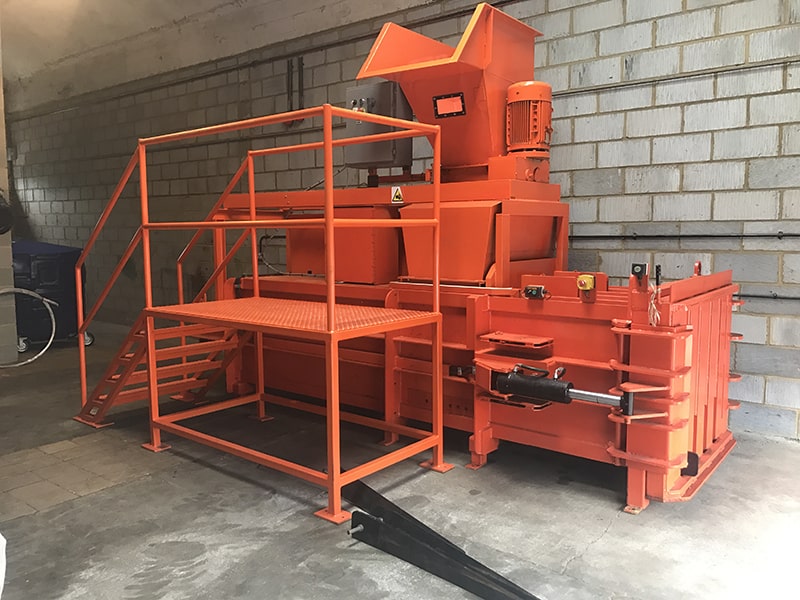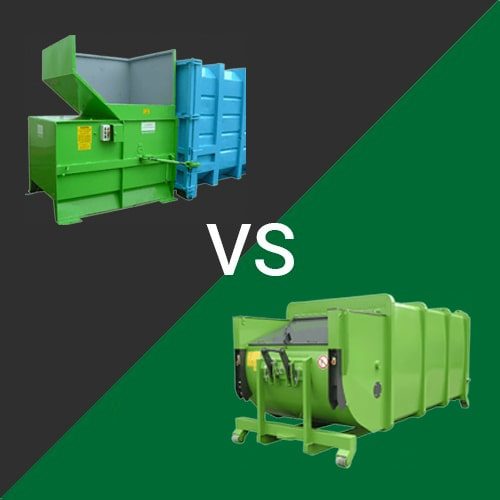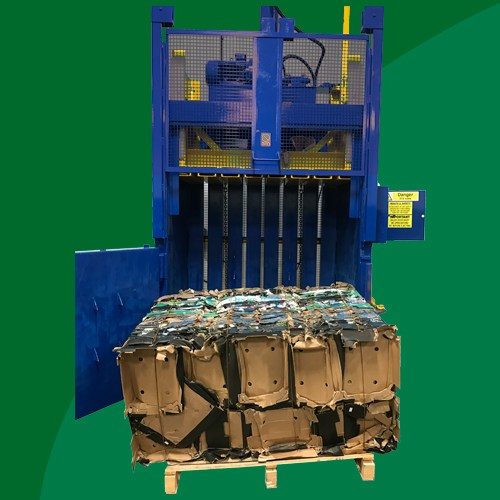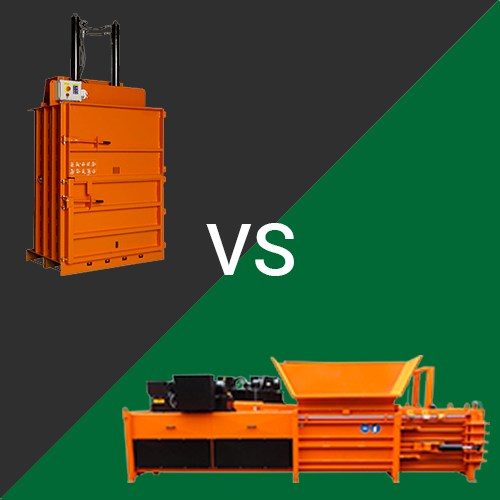Maximising Efficiency: Tips for Optimising Your Waste Compactor
Top Tips for Optimising Your Waste Compactor
Using your waste compactor efficiently means you get the best efficiency and sustainability. Let’s explore practical strategies and expert insights to streamline the performance of your waste compactor. Such strategies will not only minimise the environmental impact but also maximise its operational effectiveness. Whether you’re a business owner aiming to improve your waste management practices or responsible for company waste management and seeking eco-friendly solutions, these tips will help you make the most of your waste compactor contributing to a cleaner and more sustainable future.
Introduction to Waste Compactors
Waste compactors are important tools in waste management and disposal as they reduce waste volume by compression. The primary role is to optimise the use of space to store waste, enhancing efficiency and minimising the environmental impact of waste disposal. By compacting waste, these machines significantly decrease the volume of materials, thereby reducing the frequency of waste pickups and the associated transportation costs. One of the biggest environmental benefits of waste compactors is the decreased reliance on landfills; compacted waste takes up less space, extending the life of existing landfill sites. This reduction in landfill use not only conserves valuable land resources but also helps mitigate the environmental challenges posed by landfills, such as soil and water pollution. Having less frequent waste collections not only reduces costs to your business but also reduces the carbon footprint of waste removal. All of this makes waste compactors a sustainable solution for businesses and communities aiming to improve their ecological footprint in terms of waste management.
Types of Waste Compactors
Your choice of a waste compactor depends on factors like the type and volume of waste generated, available space and specific disposal needs. It’s essential to assess these factors carefully to choose the most suitable compactor for your needs.
Portable Waste Compactors
Suitability: Ideal for businesses with wet waste and varying waste-generating locations or those lacking space for a static compactor.
Features: These compactors are fully sealed so there is no leakage of waste when compacting.
Static Waste Compactors
Suitability: Suited for businesses with high volumes of dry waste. As it is static, a variety of feeding methods are possible.
Features: Stationary; these compactors are installed at a fixed location. They are efficient for managing larger quantities of waste and are commonly found in industrial settings, manufacturing plants or large commercial establishments.
In-Bin Waste Compactors
Suitability: Ideal for businesses or facilities generating waste that can be easily loaded into bins, such as retail stores, hotels or restaurants. Due to the size of the machine, it is suited for tight sites with limited space.
Features: These compactors are designed to fit existing bins or skips, providing a space-saving solution. They are effective for managing moderate volumes of waste without the need for a dedicated compactor room.
Roll Packers
Suitability: Well-suited for businesses with high-volume waste generation of bulky materials like pallets or wooden offcuts.
Features: Roll packers use a rolling drum to crush and compact waste directly into large roll-on roll off skips. They are efficient for reducing the volume of bulky, low-density materials, making them suitable for recycling centres, distribution warehouses or businesses dealing with substantial wood waste.
Routine Maintenance
Regular maintenance is crucial for optimising your waste compactor and ensuring its longevity. Investing time in proper upkeep makes your waste compactor safer and more efficient. Here’s a comprehensive maintenance checklist to care for waste compactors:
- Cleaning
Hopper and Chute: Regularly remove debris and residual waste from the hopper and chute to prevent clogs and ensure smooth operation.
Compaction Chamber: Clean the compaction chamber to prevent the buildup of materials that can hinder compression efficiency.
- Lubrication
Moving Parts: Lubricate all moving parts, including hinges, joints and the compaction ram, to reduce friction and extend the lifespan of components
Hydraulic System: Check and maintain hydraulic fluid levels according to manufacturer specifications.
- Safety Checks
Emergency Stop System: Test and ensure the functionality of the emergency stop system to guarantee a quick response in case of issues.
Safety Guards: Inspect safety guards and ensure they are securely in place to prevent accidental contact with moving parts.
Proper Waste Sorting
Properly segregating recyclables, organic waste and hazardous materials before compacting is important for sustainable waste management. It also makes your waste compactor more efficient. Proper waste sorting offers a range of environmental, economic and operational benefits. By separating recyclables, businesses conserve resources and improve energy efficiency, diverting materials away from landfills. Sorting organic waste facilitates environmentally friendly practices such as composting and anaerobic digestion, reducing methane emissions and producing valuable compost or biogas. Economically, recycling materials generates cost savings and creates a supply of secondary raw materials. Operationally, waste sorting reduces contamination risks, ensuring the compactor’s efficiency and extending its lifespan by preventing damage from hazardous substances.
Loading Techniques
Evenly distribute waste and avoid overloading your waste compactor to get the best compaction and prevent operational issues. Employees should be trained to arrange materials evenly within the compactor, so that compaction is efficient and the risk of uneven wear is reduced. Avoid overloading your compactor, as it can strain the mechanisms, lead to breakdowns and compromise safety. Training employees properly in how to load the compactor will mean it works efficiently and safely for a long time. Well-trained staff contribute to a safer work environment, reduce the likelihood of equipment damage and improve the overall effectiveness of your waste management processes.
Safety Measures
It’s essential to have proper safety measures in place in waste management, particularly with waste compactors, as it’s paramount to safeguarding both personnel and operations. Proper signage showing safety protocols, restricted zones and emergency contact information gives a visual guide to employees and visitors, reducing potential risks. Employee training is essential for awareness of safety procedures, emphasising the correct operation of compactors and the importance of using correct PPE. Establishing clear emergency procedures, including immediate shutdown protocols and first aid response, ensures everyone is prepared in case of an accident.
Safety regulations and compliance standards, such as the Health and Safety at Work Act (1974) and the Control of Substances Hazardous to Health (COSHH) Regulations, mandate employers to provide a safe working environment, which all translates into comprehensive risk assessments, proper training and adherence to prescribed safety measures within the waste. management industry. Observing these regulations not only ensures legal compliance but prioritises the well-being of employees involved in waste management.
Cost Reduction Strategies
Optimising your waste compactor can have significant savings for your business. By compacting waste efficiently, you can reduce the amount of waste for disposal, directly lowering landfill use and reducing your associated disposal fees. Additionally, the extended compactor life from proper use and maintenance means less frequent repair and replacement costs. The reduction in waste volume also translates to fewer waste pickups and therefore decreased waste transportation costs. Overall, an optimised waste compactor not only minimises disposal expenses but also streamlines operational processes, adding to a cost-effective waste management strategy for your business.
Find the Best Waste Compactor for Your Business
With a huge range of state-of-the-art waste compactors on offer, Landfill Alternatives has the range, expertise and knowledge to make sure you get the perfect waste compactor for your business needs. Get in touch today to find the right compactor for you and start saving time and money on your waste management now.



